Sample information |
|
| Picture |
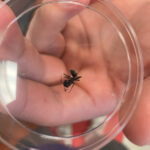
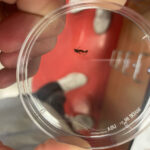
|
|---|---|
| Location | |
| Collection date | 09/06/2024 |
| Captive / Cultivated? | Wild-caught |
| Group | Owego Free Academy |
| Observations | The ant’s we collected were different sizes but from the same location. They were on a sidewalk near some mulch and grass. |
| Putative identification | Arthropoda Insecta Hymenoptera |
Methods |
|
| Extraction kit | DNeasy (Qiagen) |
| DNA extraction location | |
| Single or Duplex PCR | Single Reaction |
| Gel electrophoresis system | MiniOne |
| Buffer | TBE |
| DNA stain | GelGreen |
| Gel images |
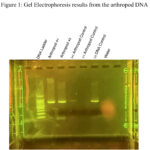
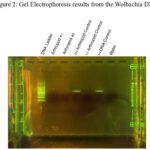
|
| Protocol notes | In Figure 1, lane one, a DNA Ladder is shown. A DNA Ladder is a “cocktail” of fragments of DNA. The ladder itself is used as a reference tool to estimate the band size, and to make sure the gel electrophoresis test runs properly. Lanes two and three contain arthropods one and two: the ants that were used to test for Wolbachia. In lane four, the positive arthropod control is shown. This gives a group in which it is guaranteed that there is arthropod DNA present. Lane five should contain arthropod DNA, but should not contain Wolbachia DNA. Unfortunately, an error occurred within the process of getting the arthropod into the tube, causing there to be no arthropod DNA in this tube whatsoever. Due to this, there is not a band, meaning one of our controls did not work, as it did not exist. Lane six shows positive DNA control, meaning there is guaranteed DNA in there. Lane seven is water, and it was used to ensure there was no contamination in the experiment. In figure 2, the DNA ladder still exists in lane one, therefore the gel electrophoresis ran properly. The positive DNA control in lane four remains the same, as there is both arthropod and Wolbachia DNA present. In lane five, there is again no band present where the negative arthropod control should be, which is an error, as this control should contain Wolbachia DNA, but not arthropod DNA. In lane seven water, the water band remains the same. Arthropods one and two have no bands. This means that there was no Wolbachia present in the arthropods that were examined. |
Results |
|
| Wolbachia presence | No |
| Confidence level | Medium |
| Explanation of confidence level | We are somewhat confident, as we were careful to not contaminate our experiment. We replaced the PCR tips every time we picked up a new liquid, and wore gloves. For the cocktails, we flicked the containers to vortex the mixture, and held the containers near eye level when extracting the DNA to make sure we were at the bottom of the container. We carefully removed the ant’s abdomen and crushed it, leaving to large pieces. When doing the gel electrophoresis, we did not break the gel at all when adding the DNA, nor when creating the gel cast. Our only error came with the negative arthropod control, as the DNA was not crushed enough to be amplified in the gel electrophoresis. |
| Wolbachia 16S sequence | |
| Arthropod COI sequence |
|
| Summary | The Hymenoptera was found to be negative for Wolbachia. |
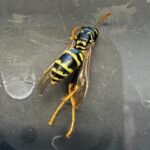 European Wasp
European Wasp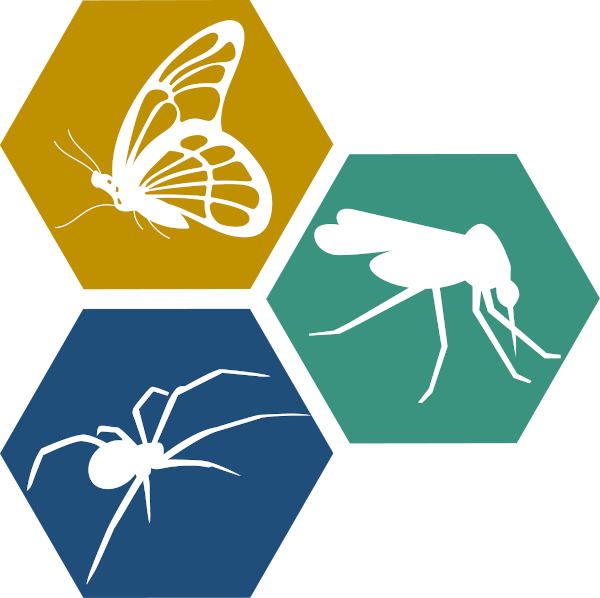 Small Honey Ant
Small Honey Ant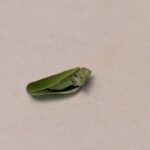 7A
7A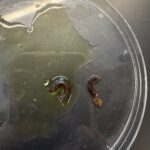 Millipede 7F
Millipede 7F